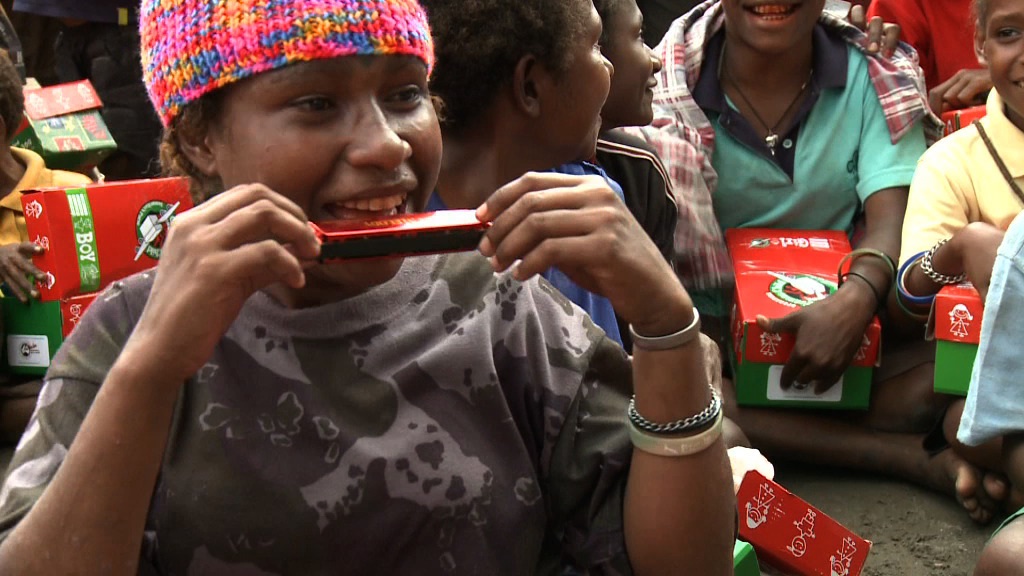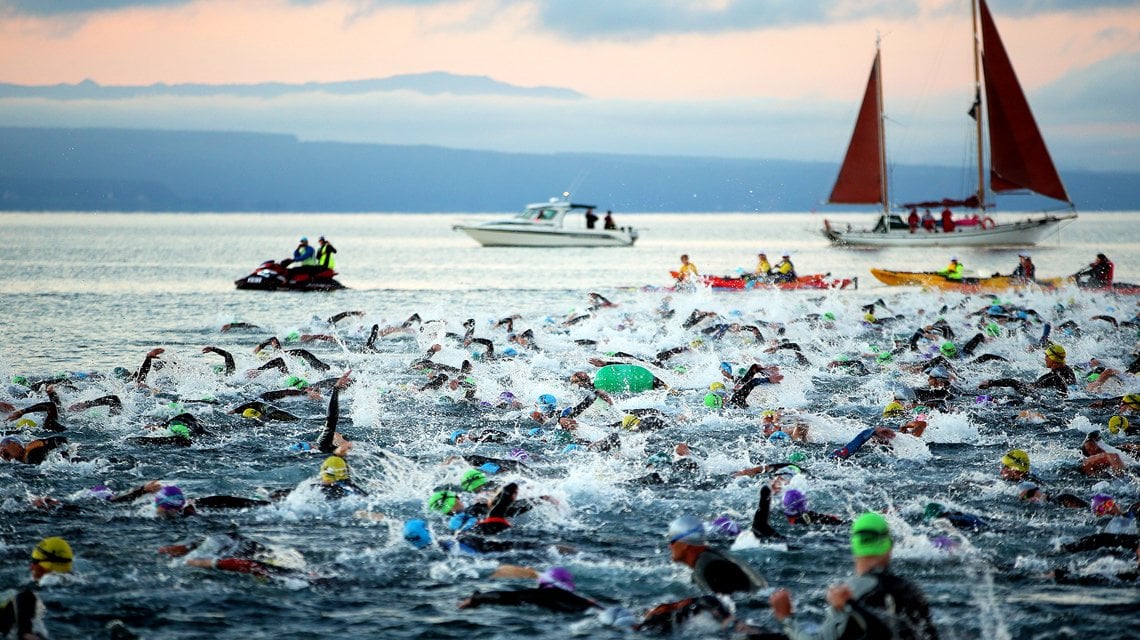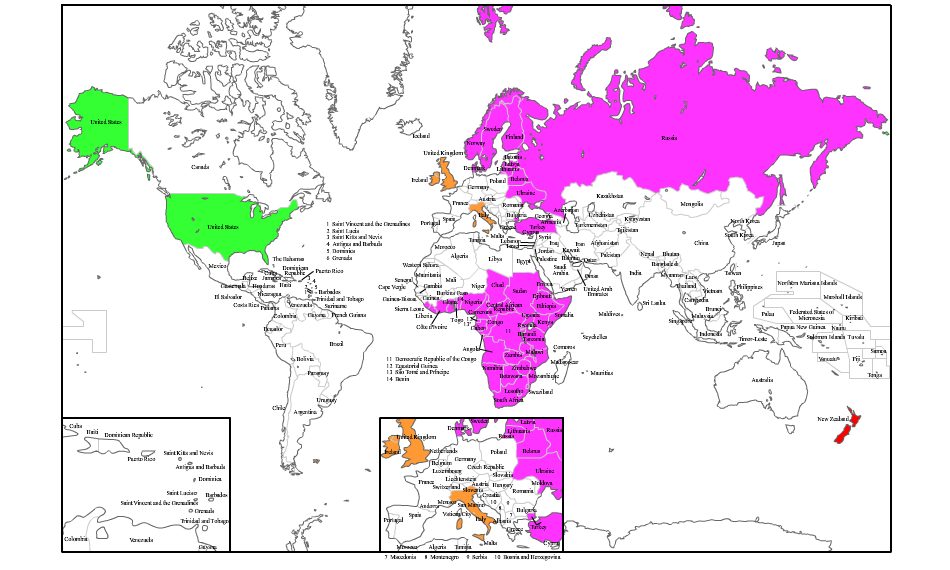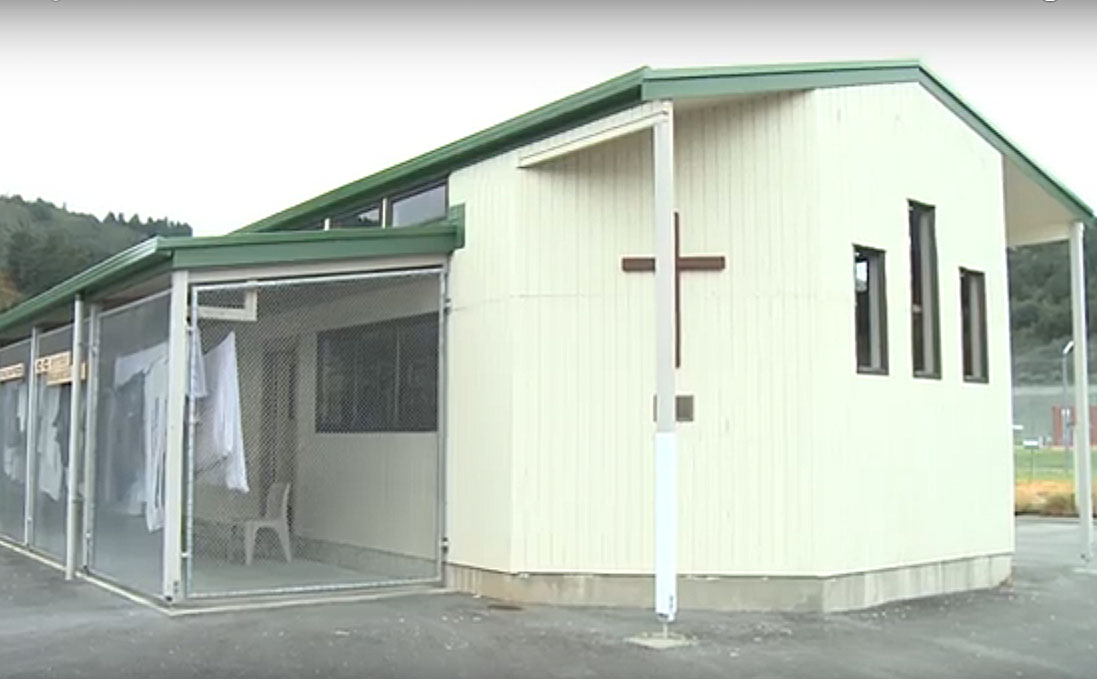
 Papua New Guinea is not your average tourist destination. Westerners who come here usually come to work – more often than not in the natural gas, oil, copper and gold industries. PNG is rich in natural resources – but they’re hard to get at and four years ago it was designated as a “least developed” country by the UN (though in fact PNG’s economy is fairly robust compared to others). Its population is quite small considering the land mass available – below eight million, and only about an eighth of those live in urban areas. Despite the small population, there are around 850 different languages making it one of, if not the most culturally diverse nation on the planet. Many people live in extreme poverty, with a third of the population earning less than US$1.25 a day.
Papua New Guinea is not your average tourist destination. Westerners who come here usually come to work – more often than not in the natural gas, oil, copper and gold industries. PNG is rich in natural resources – but they’re hard to get at and four years ago it was designated as a “least developed” country by the UN (though in fact PNG’s economy is fairly robust compared to others). Its population is quite small considering the land mass available – below eight million, and only about an eighth of those live in urban areas. Despite the small population, there are around 850 different languages making it one of, if not the most culturally diverse nation on the planet. Many people live in extreme poverty, with a third of the population earning less than US$1.25 a day.
So when we were contacted by the Australian branch of the charity Samaritans’ Purse to follow the progress of the Operation Christmas Child boxes to their eventual destination in PNG, at least we knew these boxes were going somewhere where they would be needed. Every year, thousands of people around the world fill a shoebox with small Christmas gifts for a child in a third world country who would not otherwise receive anything at Christmas. But, as I found out on the trip, the boxes are only one part of what that Christmas generosity achieves.
Sky News editor Richard Sutherland (who was to run one of the pieces that we produced in PNG) told me Port Moresby was “the Mos Eisley of the South Pacific” – a reference to the Star Wars space port famously described by Obi Wan Kenobi as a “den of scum and villainy”.
 Actually, when we arrived at Port Moresby’s airport, it didn’t seem particularly scummy or villainous – but it was very hot and humid. December is the rainy season, and it rains most late afternoons or evenings, while the rest of the time it’s just almost as humid as if it WERE raining. But we were met by some of the pastors from the FourSquare Church in Port Moresby, Samaritans’ Purse’s partners in PNG, who bundled us into vans and took us to the hotels.
Actually, when we arrived at Port Moresby’s airport, it didn’t seem particularly scummy or villainous – but it was very hot and humid. December is the rainy season, and it rains most late afternoons or evenings, while the rest of the time it’s just almost as humid as if it WERE raining. But we were met by some of the pastors from the FourSquare Church in Port Moresby, Samaritans’ Purse’s partners in PNG, who bundled us into vans and took us to the hotels.
Because I was reporting back to RBG radio stations it was decided I should be put in a room on my own – after all, our breakfast show was going to be ringing me a 3.30 in the morning, which is pretty brutal if you don’t actually have to get up at that time. Sure enough, Breakfast announcer Aaron Ironside rang bright and early and I tried real hard not to sound like I’d only had three hours sleep.
By now we were hoping to have got the OCC boxes out of Customs and ready for delivery – but sadly this wasn’t to be, so instead we went to have a look round the FourSquare Church in Port Moresby – and this is where we began to realise that there was much more to OCC than simply boxes. Out the back of the church is a separate engineering department, busily fabricating things like pumps, ovens and all sorts of other bits and pieces which can revolutionise a village which up until now has had no fresh water, safe sanitation or means of cooking.

The church leaders explained to us that the OCC boxes establish a relationship between the Church and the local community. Once that relationship is established the Church is then able to go ahead and start helping in other, practical ways. At the Church itself they also have a health clinic and dentists surgery – all of huge value to the local community.
There’s still no sign of the boxes – they’ve now been cleared by Customs but the logistics people have now gone AWOL. We’re hoping they’ll be released in time for us to visit a village during the afternoon but no such luck. While we’re waiting, we go and have a look at one of the local markets. Very colourful, but I have to say I didn’t feel particularly comfortable. Church members were with us all the time, watching our backs, but despite this Helen from Adelaide had all her camera gear stolen from the back of the van in the blink of an eye. It’s a wakeup call to us all.
 Next day, the boxes still haven’t arrived – but we set off for Bononamo, a fishing village about three-and-a-half hours from Port Moresby. It’s a fascinating trip, which starts on a road, with speed bumps every now and then put it place by locals who want you to slow down and buy stuff from their roadside stalls. The road turns to a smaller road, then to an unmetalled road, then to a track through the bush. It feels a bit like we’re being real pioneers (not really though, as we’re in air-conditioned 4WD Toyotas! Still hot, even so…).
Next day, the boxes still haven’t arrived – but we set off for Bononamo, a fishing village about three-and-a-half hours from Port Moresby. It’s a fascinating trip, which starts on a road, with speed bumps every now and then put it place by locals who want you to slow down and buy stuff from their roadside stalls. The road turns to a smaller road, then to an unmetalled road, then to a track through the bush. It feels a bit like we’re being real pioneers (not really though, as we’re in air-conditioned 4WD Toyotas! Still hot, even so…).
The village is beautiful, set back from the sea beneath whispering palms above a white sandy beach. Fishing boats are pulled up on the strand. Villagers are pleased to see us and make a big fuss of us. They’ve organised a welcome for us, with kids dancing and a meal. We get to meet some of the village’s leaders and the local councillor as well. They’re very pleased with the wells that have been dug since Samaritans Purse first came here with boxes for the children. Not only wells, but so much more – incuding a sanitation system and regular health care. Gabriel, one of the local leaders, tells me it’s been a blessing.
 Life here may be beautiful but it is by no means easy. The village fishes for a living, taking the fish into the market (three-and-a-half hours away) every day. It’s not an easy life by any means. But there’s no doubt that the cooking ovens and fresh water from the new pumps is making a huge difference to life. It’s a long journey home – it’s hard to imagine doing that every single day.
Life here may be beautiful but it is by no means easy. The village fishes for a living, taking the fish into the market (three-and-a-half hours away) every day. It’s not an easy life by any means. But there’s no doubt that the cooking ovens and fresh water from the new pumps is making a huge difference to life. It’s a long journey home – it’s hard to imagine doing that every single day.
The next day we went to church and again, were made very welcome – half a dozen people came up to me afterwards to say “kia ora”, including one PNG lady who had just returned to Port Moresby after living in Palmerston North. And good news at last – the boxes have been finally extracted from the port and we’re now able to deliver some.
So, we pile back into the vehicles and set off to Brown River, about an hour out of Port Moresby. This is a very different place to Bononamo. The villagers here are outcasts, and as OCC’s Christer King Edeborg told me, they’ve been rejected by everyone else. The village looks tattier than Bononamo, and it’s obvious there’s some kind of party going on nearby – you can hear men shouting and swearing. Apparently they’re drunk, or stoned, or both on betel nut and alcohol. But the children are waiting for their boxes, and we get on with the distribution.

It’s quite strange at first – I was shooting one girl getting a box from Helen and she seemed really unimpressed. It looked more like we were giving her a dead fish than a box of Christmas gifts. As I looked above the viewfinder, I could see a similar scenario being played out across the open square where the children were all sitting. It was only afterwards that Pastor Arthur Tane explained that most of the children would never have had anything that was their own before – more often than not, if they were given anything, it would have been taken away from them by adults. So these kids assumed that they were just getting to hold the box for a while before a grown-up came and took it away from them.
 It was only when the children got to open the boxes that they realised its contents were actually for them. The change in their faces was amazing – the unimpressed looks of a few seconds earlier were replaced by big smiles. You had to smile – particularly at the girl who had excitedly donned the woolly beanie hat in her box even though it was forty degrees. It’s hard to believe the girl in these two pictures is the same person. By now the ‘party’ was beginning to get out of hand and the excitement of the children was beginning to communicate through to the men at the back. The FourSquare church workers decided discretion was the better part of valour and it was time for us to leave.
It was only when the children got to open the boxes that they realised its contents were actually for them. The change in their faces was amazing – the unimpressed looks of a few seconds earlier were replaced by big smiles. You had to smile – particularly at the girl who had excitedly donned the woolly beanie hat in her box even though it was forty degrees. It’s hard to believe the girl in these two pictures is the same person. By now the ‘party’ was beginning to get out of hand and the excitement of the children was beginning to communicate through to the men at the back. The FourSquare church workers decided discretion was the better part of valour and it was time for us to leave.
All in all it was an eye-opening and fascinating trip. It’s one thing to read about the conditions experienced by the children of PNG but it’s something else to see it for yourself. And to see the impact of such a simple thing as a shoebox full of Christmas gifts is quite humbling. It’s fantastic to see how the boxes can lead to so much more than a few toys – and to see communities changed forever, and for the better. But I think the over-riding memory I shall take away is the warmth, generosity and kindness of the people we met. People who had next to nothing were willing to share whatever they had with us. When we arrived back at Brisbane airport and were plunged once more into the midst of a western Christmas, you could not help but be struck by the contrast of a civilisation where we seem to be obsessed by getting stuff, and a country where, despite all the problems, what seems to matter most is family, friendship, and community. I wonder who’s REALLY got the idea of Christmas right...
“Keep your lives free from the love of money and be content with what you have.”
Hebrews 13:5





